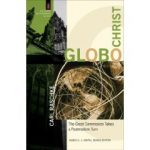Raschke, Carl. GloboChrist: The Great Commission Takes a Postmodern Turn. Baker Academic, 2008. ISBN: 9780801032615.
Meet the Author
Carl Raschke is professor and chair of the department of religious studies at the University of Denver and an adjunct faculty member at Mars Hill Graduate School. He is an expert on postmodernism and Christianity, the author of over twenty books, and a regular contributor to Church and Pomo and Rhizone . Learn more about him by visiting his faculty page or personal website.
About the Book
Raschke writes a thoroughly academic volume that issues a challenge to be and become missional agents engaged in enacting the Great Commission. The world is post-Christian, post-Western, and postmodern. The globalization of the marketplace and the globalization of religion are linked as are postmodernism and globalization. These changes mean that “we all, whether we like it or not, are going global which is what that obscure leader from Palestine truly had in mind” when he issued the Great Commission to his followers (p. 25).
enacting the Great Commission. The world is post-Christian, post-Western, and postmodern. The globalization of the marketplace and the globalization of religion are linked as are postmodernism and globalization. These changes mean that “we all, whether we like it or not, are going global which is what that obscure leader from Palestine truly had in mind” when he issued the Great Commission to his followers (p. 25).
Raschke characterizes postmodern Christianity as decentralized, deinstitutionalized, indigenized. After exploring a thoroughly postmodern approach to missions and the aggressive expansion of Islam, he suggests that what is needed is a reconstructed Christianity that is radical, relational, revelatory and rhizomic. In short, we are “no longer simply Christ’s ‘followers’ – the pre-Easter form of relation to a master-and-teacher that is conventionally called ‘disciple’ – but also perpetual incarnators (‘disciples’ in the post-Easter and perhaps . . . powerful postmodern sense of the term). We are Christ’s to one another” (p. 133).
So What?
Living out the Great Commission may mean radical change: “to let go of and do away with all the familial and formal trappings of Christian, or church-related and church-driven, programs, projects and activities and to let the medium (the person of Jesus Christ) be thoroughly the message (p. 63).
To be a Christian is not just about right belief, but also right response: “It is both to reveal Christ in who we are and to see the face of Christ in those we encounter. That is incarnational Christianity in the lived . . . sense” (p. 65).
- What does it mean to you to live as a Christian in the post-Christian, post-Western, postmodern global village?
- In this new culture, how are you living the Great Commission?
- How do you balance orthodoxy (right belief) with orthopraxy (right action)?
- How do you avoid “Burger King Christianity” that seeks to have it “your way” rather than the way of the Triune God?
- How does your church express its commitment to the Great Commission?
